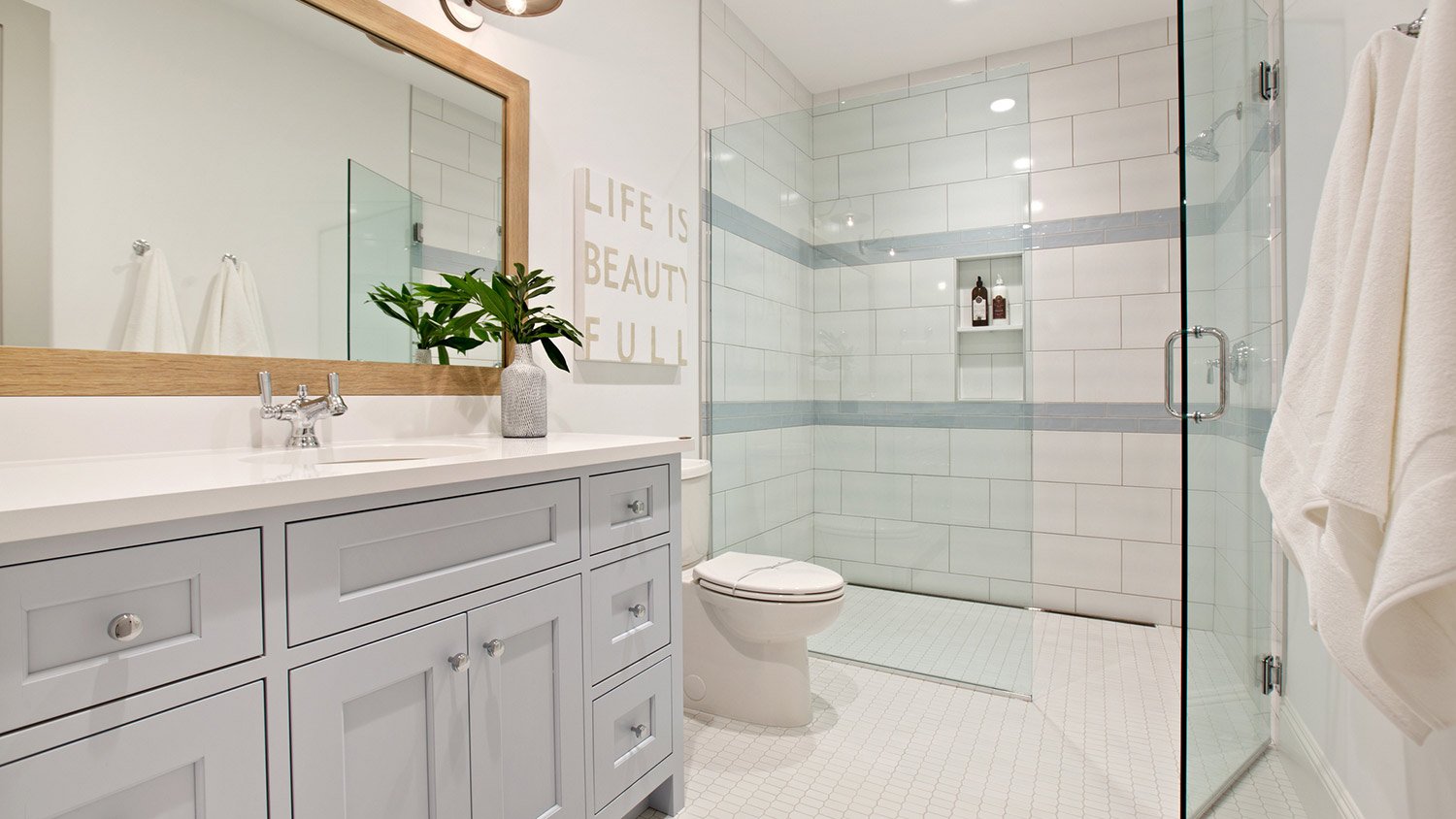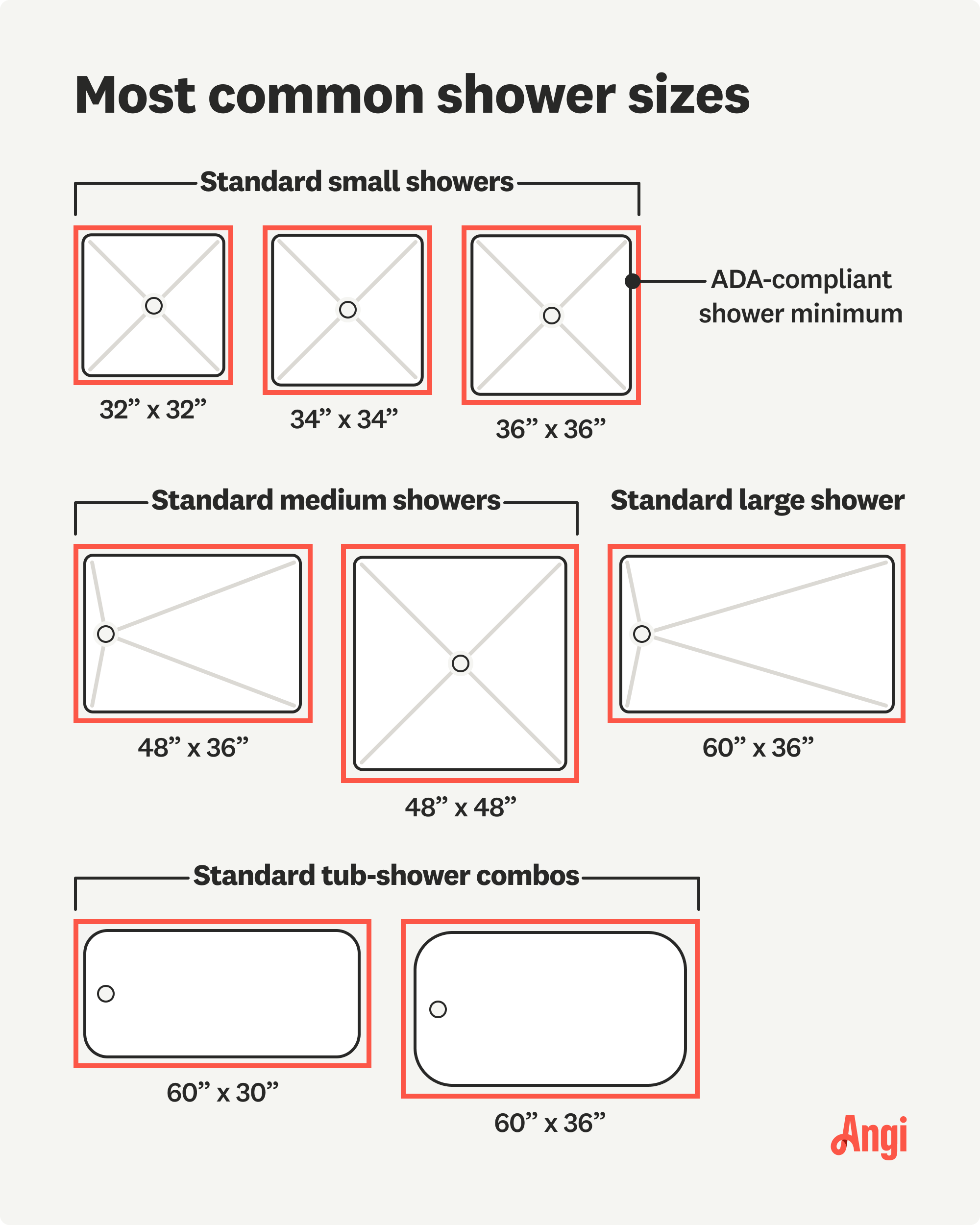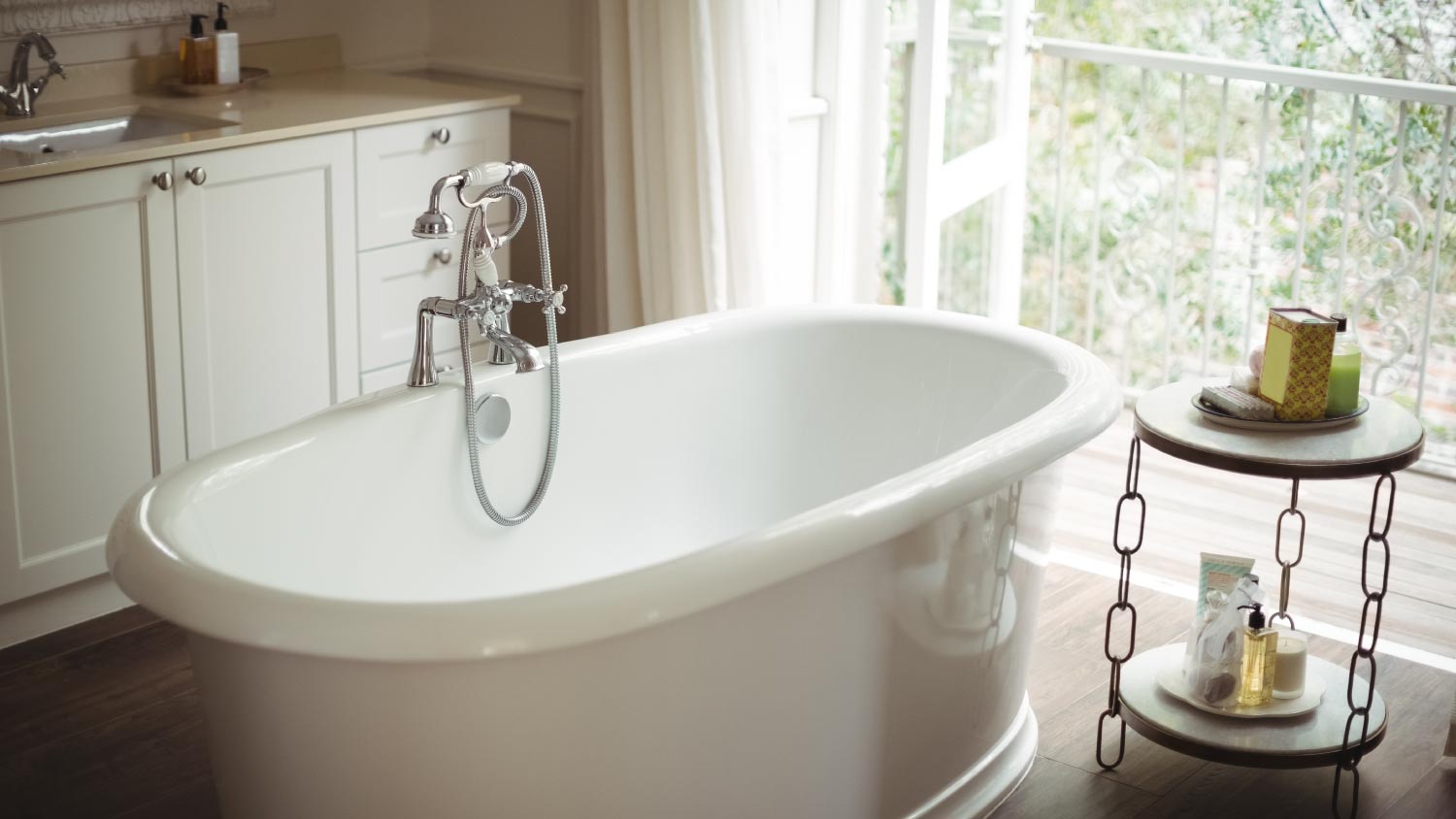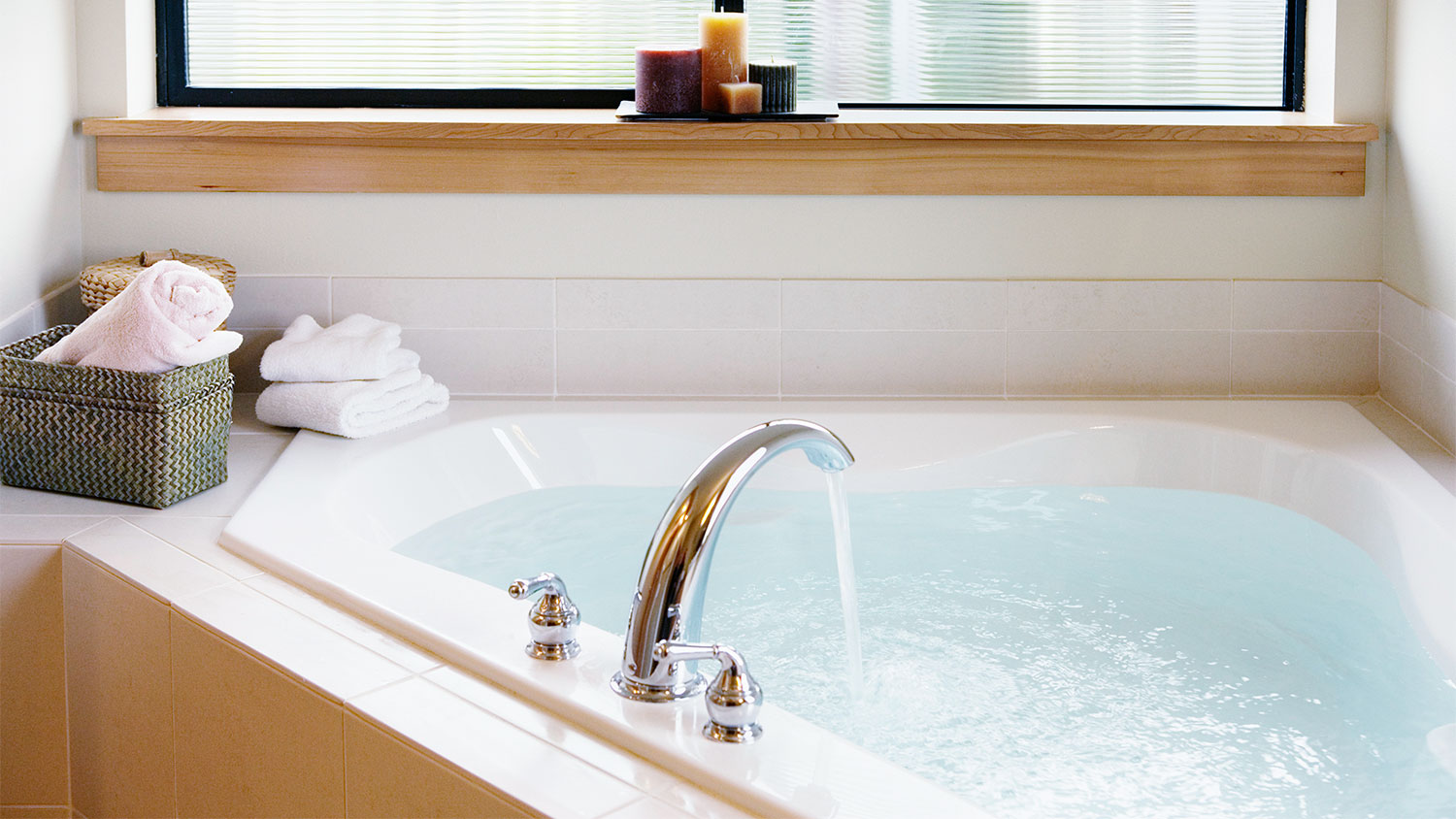
Building a guest house is one of the largest home projects and involves several different professionals. Learn about the cost to build a guest house and where you can save.
The average cost to install a shower is $4,499, but it varies from $908 to $8,091, depending on the type of shower, materials, and customizations.


Shower installation costs in New York depend on shower size, type, materials, and labor, with larger or custom designs costing more.
Standard walk-in showers start around $800, while tub-shower combos average $1,605 for a 30x60-inch setup.
Prefabricated showers are the most budget-friendly option, while tiled walk-in showers can reach up to $9,365, depending on materials and installation complexity.
Material selection, including porcelain, glass, stone, or cultured marble, significantly affects the per-square-foot cost and overall project budget.
A new shower can completely upgrade your New York bathroom, adding modern luxury features and functionality to the space. On average, shower installation in the area costs $4,499, though most homeowners spend between $908 and $8,091, depending on the shower type, size, design, and labor. Let’s break down the key factors influencing your shower installation cost in New York City.
Here are the key factors to consider when budgeting for a new shower installation in New York City.

The larger the shower, the more you’ll pay. The standard walk-in shower is 32-by-32 inches. If you use a prefabricated shower without a door, you can expect to pay around $800, which is roughly $111 per square foot.
The average cost to install a tub-shower combo is about $1,605. For the standard 30-by-60-inch size, that’s $128 per square foot.
You also have the option of adding a shower to an existing bathtub. The simplest way is to install a diverter shower, which includes a valve that directs water to your tub’s spout, a handheld shower, or a showerhead. If that’s not possible, you’ll have to invest in the cost of replacing the bathtub and install a model that supports a shower.
| Shower Size in Inches | Average Cost |
|---|---|
| 32-by-32 | $706–$1,059 |
| 34-by-34 | $770–$1,118 |
| 36-by-36 | $847–$1,216 |
| 48-by-36 | $1,103–$1,646 |
| 48-by-48 | $1,476–$2,217 |
| 60-by-36 | $1,387–$2,061 |
| 60-by-30 (Tub/Shower Combo) | $1,402–$2,084 |
| 60-by-36 (Tub/Shower Combo) | $1,682–$2,503 |
The design of your shower can dramatically impact the price of installation. A tiled walk-in shower can cost anywhere from $1,140 to $9,365. Prefabricated showers, which are plastic, can save you some money. The shower insert—which comes as a part of a kit—costs as little as $165.
| Shower Type | Average Cost |
|---|---|
| Barrier-free | $400–$1,605 |
| Shower and tub | $270–$1,070 |
| Walk-in | $160–$535 |
| Rectangular or square | $160–$535 |
High-end materials will increase the overall shower installation cost in New York. The cost to tile a shower fluctuates based on your material choice. If you opt for a fiberglass or acrylic insert, you’ll spend anywhere from $214 to $1,070.
| Shower Material | Average Cost per Square Foot | Pros | Cons |
|---|---|---|---|
| Porcelain tile | $1–$16 | Durable, water-resistant, wide range of colors | Can chip or crack, grout maintenance required |
| Glass tile | $11–$27 | Stylish, reflects light, customizable patterns | Expensive, slippery when wet, requires frequent cleaning |
| Stone tile | $3–$54 | Natural, high-end look, very durable | Porous, needs sealing, can be slippery and heavy |
| Cultured marble | $21–$35 | Low maintenance, smooth surface, resistant to stains | Limited color options, can scratch, less heat-resistant |
Some people only want to invest in the cost of a walk-in shower, some want a tub-shower combo, and others might want a full-on steam shower that doubles as a home sauna. However you prefer to get clean, here’s what you can expect to pay.
| Shower Type | Average Cost | Pros | Cons |
|---|---|---|---|
| Walk-in shower | $615–$4,280 | Sleek, modern look, easy access, customizable size | Requires more space, higher cost for larger layouts |
| Tub-shower combo | $803–$4,548 | Saves space, versatile for baths and showers | Less roomy, may feel cramped, harder to clean |
| Steam shower | $1,498–$3,794 | Spa-like experience, relaxing, increases home value | Expensive, requires plumbing upgrades, high maintenance |
| Accessibility showers | $937–$4,601 | Accessible and safe, easy to enter/exit | Limited design options, can be costly, may require professional installation |
| Tub-to-shower conversion | $642–$4,280 | Frees up space, modernizes bathroom | Expensive, demolition required, may involve plumbing changes |
If you’re replacing your existing shower, you’ll need to remove your old shower. Removal costs about $30 to $55, but it could cost more if you need to demolish walls and remove and replace pipes. You’ll also have to spend around $135 for cleanup, which involves hauling away the construction debris.
A local bathroom remodeler in New York will usually charge 20% of the total project cost, while combined labor for trades like plumbers and electricians can push total labor expenses to 40% to 60% of your total budget. A shower installer is ideal for prefab replacements, but for major renovations, a remodeler ensures code compliance and efficient project management.
DIY prefab shower installations can save money, but they come with risks. Any mistakes can cause damage to the product, leaks, or premature failures. Plus, if the shower wasn’t installed exactly as specified in the instructions (and some manufacturers require professional installation), they can even avoid the product warranty.
Some shower installations don’t require significant plumbing work because the hookups are already ready. Though smaller upgrades, like the cost to replace a shower head, can still add to your budget. In other cases, you’ll need to hire a licensed plumber near you to add a new fixture or move pipes.
Adding a new plumbing fixture for your shower costs $330 to $1,000, and most plumbers charge $30 to $110 per hour, depending on their experience level.
Shower installation can be very straightforward, especially if you’re installing a prefab model. That said, there are some instances where you may need to call pros beyond your installer and plumber. Here are some additional pros to consider:
Interior designer: $30–$110 per hour
Electrician: $30–75 per hour
Interior painter: $20–$40 per hour
Handyperson: $30–$80 per hour
In New York City, where space is often at a premium and buyers expect modern conveniences, installing a walk-in shower can be a smart way to enhance your home’s value. With an ROI of about 55%, this upgrade is most effective if combined with additional bathroom upgrades, such as new flooring or cabinetry.
Many New York City apartments and townhouses have dated bathrooms with cramped layouts, and replacing a tub with a sleek, open shower can make the space feel brighter and more functional. In such a competitive market, a stylish bathroom upgrade can help your property stand out to potential buyers.
Home is the most important place on earth, which is why Angi has helped more than 150 million homeowners transform their houses into homes they adore. To help homeowners with their next project, Angi provides readers with the most accurate cost data and upholds strict editorial standards. We’ve surveyed thousands of real Angi customers about their project costs to develop the pricing data you see, so you can make the best decisions for you and your home. We pair this data with research from reputable sources, including the U.S. Bureau of Labor Statistics, academic journals, market studies, and interviews with industry experts—all to ensure our prices reflect real-world projects.
Want to help us improve our cost data? Send us a recent project quote to [email protected]. Quotes and personal information will not be shared publicly.
From average costs to expert advice, get all the answers you need to get your job done.

Building a guest house is one of the largest home projects and involves several different professionals. Learn about the cost to build a guest house and where you can save.

The cost to add a bedroom and bathroom can pay off with an increase in your home’s value and more space for you and your family. Costs vary by project scope.

Remodeling your bathroom can add significant value to your home. Your bathroom remodel cost in Columbus, OH will depend on size, fixtures, materials, labor, and other factors.

An updated bathtub can give a bathroom a whole new look. Find out how much it costs to replace a bathtub in Los Angeles, CA, including prices by type and labor costs.

An updated bathtub can give a bathroom a whole new look. Find out how much it costs to replace a bathtub in Charlotte, NC, including prices by type and labor costs.

Learning how to remodel a house on a budget involves prioritizing projects and figuring out how much of the work you can do yourself to save on labor costs.